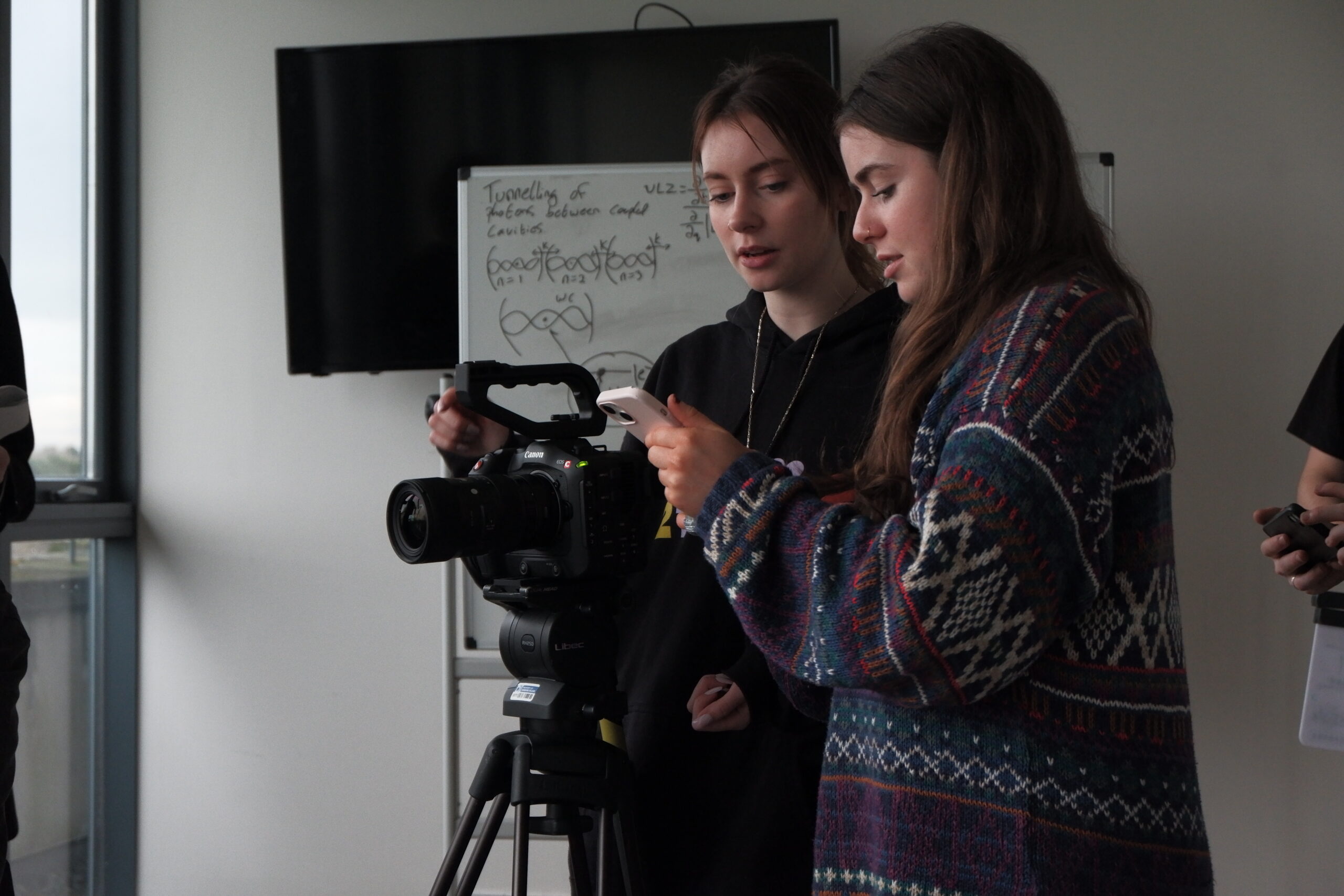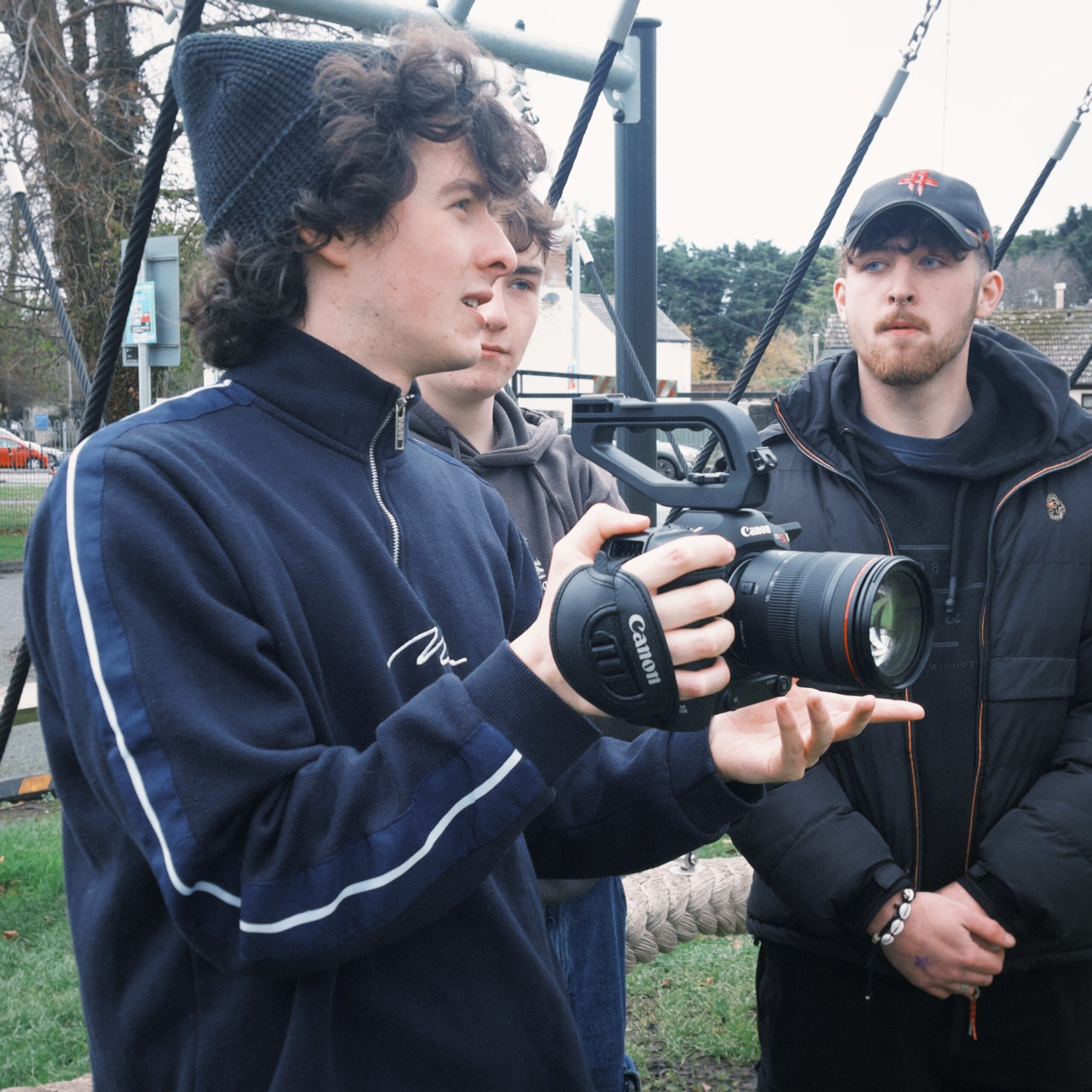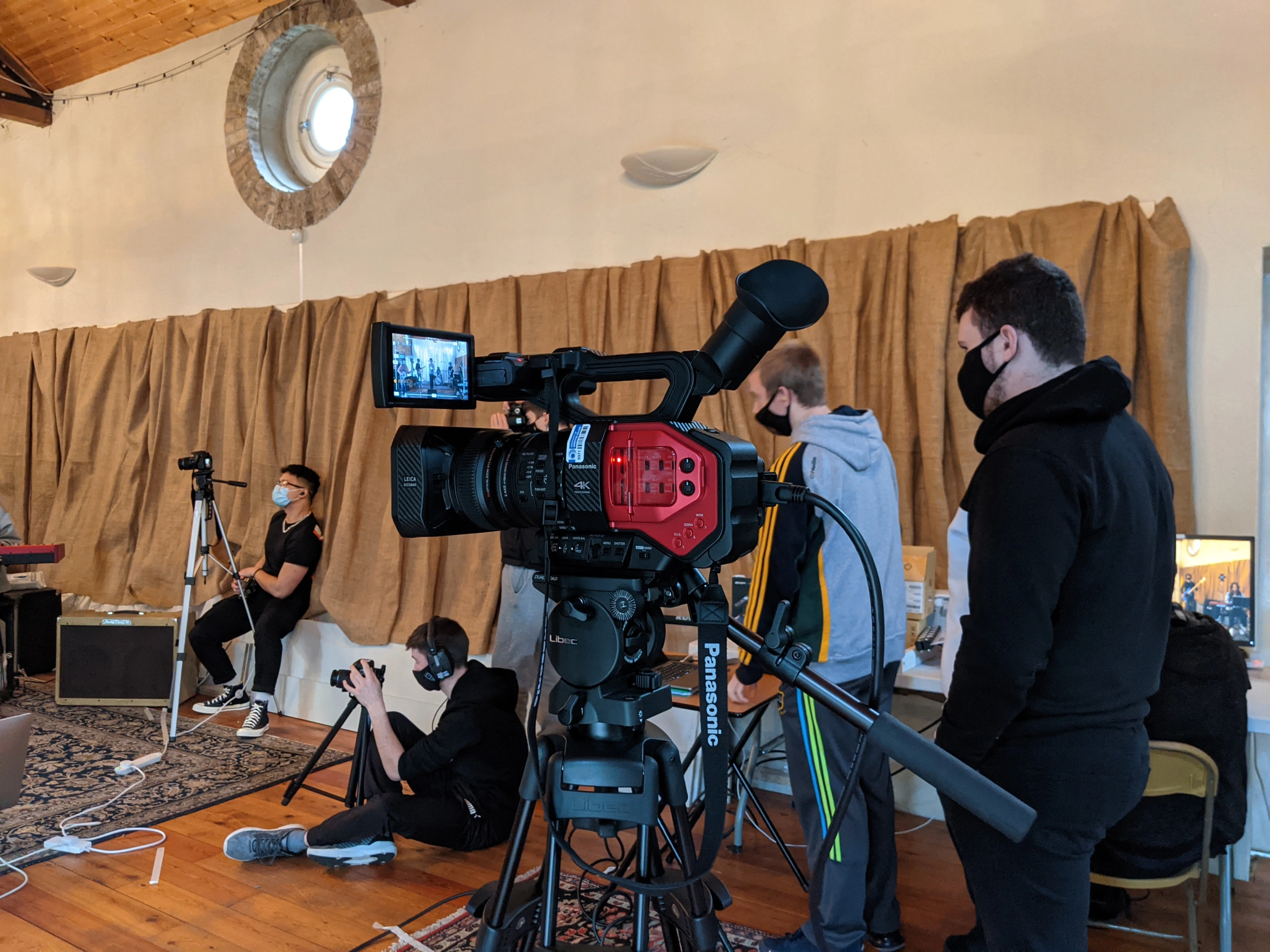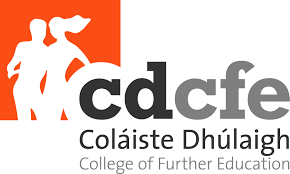Higher Nationals
Film ProductionPearson International Higher National Diploma in Creative Media Production (Film)
DETAILS IN-BRIEF
Duration: Two years, with an optional exit award after year one
Certification: Pearson International Higher National Diploma in Film Production
Level: Level 6 Higher Certificate (HNC/D)
Course Code: FND
YEAR ONE MODULES
Audio Production
Cinematography Camera Skills
Creative Media Industry
Documentary Production
Editing for Film and Television
Film Practice
Film Studies
Professional Practice
YEAR TWO MODULES
Advanced Editing for Film and Television
Advanced Film Production Studies
Collaborative Project
Documentary
Film Criticism
Personal Professional Development
Scriptwriting for Film and Television
Please note that all the modules listed are subject to change due to availability and demand.

WHAT ARE THE HIGHER NATIONALS IN FILM?
The Higher National Diploma in Film Production at DCFE is a practical, hands-on film course that prepares you for work in Ireland’s thriving film and media industries. Learn the technical and creative skills needed for roles in directing, cinematography, editing, and production while gaining real experience on set and in post-production.
Film production is booming in Ireland and beyond, and there’s never been a better time to jump in. With new technology, fresh formats, and many opportunities, you’ll find plenty of ways to make your mark and bring your cinematic vision to life. Our Higher National Diploma (HND) qualifications are designed with today’s film production landscape in mind, so you can explore a course which has a heavy practical focus and takes advantage of Ireland’s place as one of the leaders in the global film industry.
During this two-year course, we focus on skills that’ll help you stand out in the film industry and skills you can use across the creative media sector. Our Higher National courses will set you up for success, whether you’re looking to land an exciting job in film production or continue your education with a university.
COURSE STRUCTURE
Year One
The first year of the course focuses on developing the practical skills, knowledge, and understanding required to succeed in various film production and creative media industry roles. The curriculum covers various aspects of the film production industry, such as script writing, cinematography, sound production, and editing. Students learn about the creative process, production techniques, industry trends, and business aspects of media production.
Year Two
The second year is an advanced vocational set of modules which build upon the foundations provided in year one. The second year will take a deep dive into advanced film production techniques, offering students the opportunity to build a substantial portfolio of work which they can use in the search for jobs in the Irish and international film industries. There is a greater emphasis on industry practices and more opportunities for specialisation.
Modules in Detail: Year One
Audio Production
This module introduces students to the technical and creative aspects of digital audio, a vital part of modern film production. Students will learn how to record, edit, mix and distribute audio using a range of techniques and tools, including Digital Audio Workstations (DAWs). By the end of the module, students will be able to plan and produce audio content that enhances their film projects and strengthens their overall production skills.
Cinematography
This module explores the craft of cinematography, focusing on camera operation, lighting design and visual storytelling. Students will develop the skills needed to work within a camera department, gaining experience with various camera systems and equipment. Emphasis is placed on understanding how cinematography shapes narrative and audience experience, preparing students for roles across the film production process.
Creative Media Industry
This module provides an overview of the creative media sector, helping students understand the broader industry landscape. Students will examine the structure of media companies, economic models, and career pathways within film and media production. The module also explores how creative practices intersect with emerging technologies, giving students the tools to position their work within the wider creative industries.
Editing for Film and Television
Students will explore the post-production process, learning how to shape raw footage into compelling stories. This module covers editing conventions, technical workflows and creative techniques used in film and television. It highlights the collaborative relationship between editor and director and equips students with the ability to create mood, build suspense, and convey meaning through visual storytelling.
Film Practice
This module takes students through the complete film and television production cycle, from concept to finished product. It covers project planning, production management, legal and ethical considerations, and audience engagement. Students will also gain experience in marketing and promoting their work, ensuring they understand both the creative and professional demands of working in film production.
Film Studies
This module offers an in-depth exploration of the history, theory and cultural impact of film. Students will examine the evolution of the film industry, key movements and genres, and various critical approaches to film analysis. The module also explores audience behaviour and the role of narrative, helping students develop academic research and analytical skills that inform their creative work.
Documentary Production
This unit allows students to develop and deliver a documentary project from initial concept to final product. It encourages independent research, planning and production, helping students apply their technical and storytelling skills in a real-world context. By working on a project of their own design, students will develop confidence in managing workflows, solving problems, and creating meaningful, original content.
Professional Practice
This module focuses on career planning and personal development within the creative industries. Students will assess their strengths, explore potential career paths, and develop a plan for building their professional profile. It encourages reflective practice and an understanding of how to remain adaptable and informed in a rapidly evolving media landscape. By the end of the module, students will be better prepared to enter the industry or progress to further study.
Modules in Detail: Year Two
Advanced Editing for Film and Television
The Advanced Editing for Film & Television module expands upon students’ basic editing skills, focusing on the development of sophisticated creative and technical expertise. Students will examine the narrative significance and technical capabilities of visual digital effects software within edited sequences. They will also study the impact of rhythm, pacing, and music on audience experiences in drama and documentary by deconstructing professional sequences and creating their own.
The unit explores image and sound specifications, resolutions associated with film and television post-production, and techniques for crafting transitions and effects. Upon completion, students will be adept at analysing colour and sound levels, comparing them to industry standards, and applying corrections to produce a polished product that meets professional benchmarks.
Advanced Film Production Studies
This unit offers students the chance to delve deeper into film-making skills, encompassing practical, creative, and management aspects of film production, from the initial pitch to a completed short film. Both individually and collaboratively, students will enhance their understanding of equipment, techniques, and processes related to film-making. They will develop and pitch short film ideas, assume various production roles, and consolidate their knowledge of pre-production, production, and post-production processes.
By presenting their final short films, students will evaluate the connection between audience experience and their creative and technical practice, reflecting on their accomplishments and future plans. The unit’s framework supports the development of in-depth knowledge and skills in the specialist subject, with the flexibility to accommodate broad subject areas and greater specialisation based on local needs or student interests.
Collaborative Project
This unit fosters interdisciplinary collaboration and creative engagement within creative media production. Students can work in small groups, collaborate with external partners, or as a cohort to undertake shared creative media production experiences. The unit strives to simulate working studio conditions, thus enhancing and developing professional industry skills and practices.
Developing the ability to define, plan, and execute projects is critical across various roles within the creative industries. Students will learn to identify relevant information and analyse it to devise clear solutions underpinning numerous applied practice processes. By focusing on collaborative working practices, the unit prepares students for the realities of the creative media production industry.
Documentary
Documentaries serve a crucial role in society, distinct from fiction, as they record, portray, inform, educate, and interpret events and experiences. The genre transcends traditional film and television realms with the emergence of hybrid and new documentary forms using technology creatively. Documentaries encompass various communication styles, from shocking and controversial to informative and emotional, and have inspired countless authors, filmmakers, radio presenters, podcasters, and media producers.
This unit enables students to explore documentary genre conventions, understand its context and origins, and contemplate its future. They will learn how to identify a subject, conduct research, plan, and produce a short documentary, gaining valuable insights and skills in documentary creation.
Film Criticism
Film Criticism delves into the theories and concepts related to the film medium and individual films. It extends beyond film theory, focusing on examining and evaluating films from cultural and theoretical standpoints.
In this unit, students will engage with theoretical constructs such as ideology, auteur theory, gender representation, psychoanalysis, spectatorship theory, and postmodernism, applying these concepts to film critiques. The unit equips students with the skills to analyse, discuss, contextualise, argue, and evaluate films from various perspectives while also informing their own film-making practice.
Personal Professional Development: Professional practice necessitates a thorough, objective analysis of one’s strengths and weaknesses, along with a clear strategy for showcasing skills and abilities to potential employers or clients, which is crucial for future success.
This unit supports students transitioning from study to employment or freelance work in creative media production. Building upon the previous study, students will now develop a strategy for their future career, whether employed or self-employed. The unit covers topics such as career planning, CV writing, interview skills, self-promotional material, legal frameworks, business planning, and social and professional networks, preparing students for the challenges of the professional world.
Scriptwriting for Film and Television
The scriptwriter plays a crucial role in the production process, often involved from the initial stages. They create characters and narratives for diverse film and television productions, spanning genres and formats such as soaps, comedies, thrillers, and entertainment shows.
This unit aims to enhance students’ understanding of script development, including idea creation and expansion, presenting script proposals in various industry-accepted formats, and drafting film and television scripts to professional standards across different genres. Upon completion, students will be able to describe the people and practices involved in script development and create industry-standard film or television scripts using recognised software.
OUR STUDIOS
Students on our HND in Film Production course benefit from access to the professional facilities at Kairos Studios. These industry-standard spaces are used by broadcasters such as RTÉ, Sky, and TG4, as well as a range of independent and corporate production companies.
This collaboration enhances the practical elements of the course, giving students hands-on experience with professional equipment and environments that reflect current industry practice.

WHY STUDY HIGHER NATIONALS IN FILM AT DCFE?
The Higher National Diploma’s more extensive coursework and advanced skillset make its graduates more competitive in the job market and better prepared for various creative media roles.
The Higher National Diploma is a recognised international qualification, delivered in over 50 countries worldwide. Graduates of our Higher Nationals in Film Production can progress to various undergraduate degree courses upon successfully completing their studies.
The two-year duration and deep focus of the Higher National Diploma at DCFE often leads to stronger connections with industry professionals and organisations, providing students with valuable networking opportunities and a better understanding of the media production landscape. Plus, students will build an extensive portfolio of work to secure employment.

CERTIFICATION
Being a two-year course, we know how important flexibility is. This is why we offer our students the option of an exit award after successfully completing the first year. This can suit those who wish to take a break from study or progress onto a different course in DCFE or elsewhere.
Year One
– Pearson International Higher National Certificate in Creative Media Production (Film)
Year Two
– Pearson International Higher National Diploma in Creative Media Production (Film)
Links
Click here for the NARIC Academic Recognition of the HNC
Click here for the NARIC Academic Recognition of the HND
CAREER OPPORTUNITIES
Such is the practical nature of our course; it can lead directly to a range of job opportunities in the film and entertainment industry. Possible career paths include film director, cinematographer, film editor, sound designer, screenwriter, producer, and production designer. Other potential jobs include casting director, location manager, visual effects supervisor, and more.

ENTRY REQUIREMENTS
At least one of the following:
- Leaving Certificate
- Leaving Certificate Applied (LCA)
- QQI Level 5 major award in a related subject
- Mature students of all background
- Other equivalent qualification
In addition to the following:
- Submitting of a personal statement (more details of which will be provided upon application)
HOW TO APPLY
You can apply for the course using the “Apply Now” on the website which will bring you to the colleges’ application system.
EXAMPLES OF HIGHER EDUCATION PROGRESSION
Graduates can take advantage of a wide range of degree progression routes including one-year top-up degrees offered by CDCFE, as well as progression to universities, Institutes of Technology, and Technological Universities across Ireland. As the Higher Nationals are internationally recognised qualifications, offered in over 50 countries, advanced entry opportunities are also available in the EU and UK. Please note that in all cases, progression is subject to the admissions policies of the receiving institution and cannot be guaranteed.




COURSE FEES
For information on fees, please see our Fees page
